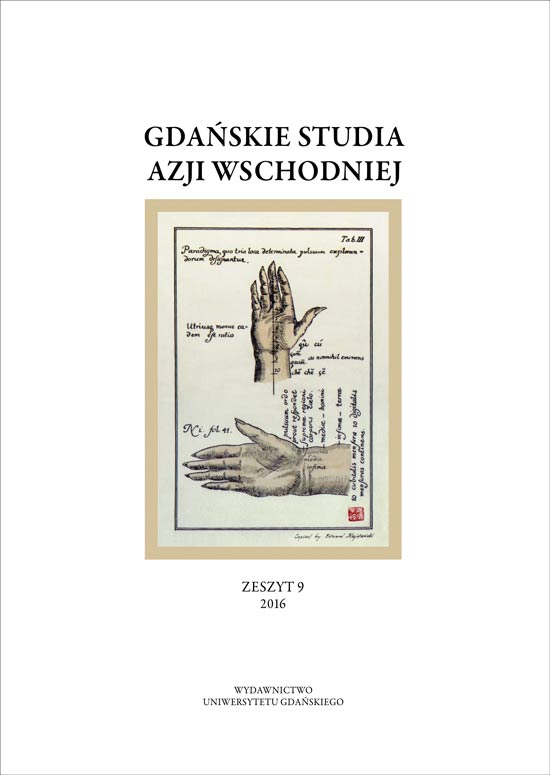Kierunki polityki bezpieczeństwa Japonii pod przywództwem premiera Shinzō Abe w latach 2006–2007 oraz po roku 2012
Abstrakt
When Shinzō Abe became the Prime Minister of Japan in 2006, he promised groundbreaking reforms to the national security system of Japan and a revision of the Article 9 of the Japanese Constitution, which renounced war and prevented Japan from maintaining any war potential. However, under the recent interpretation of the Article 9 the Japanese administration is allowed to maintain forces used exclusively for self-defense within the Japanese borders. Only during his second term of office as a Prime Minister, he fulfilled those promises. In 2013 he established the National Security Strategy with National Security Council modeled after its American counterpart. Shortly after, the Japanese Parliament approved a controversial State Secrecy Law. Lastly, in July 2014 Abe’s Cabinet managed to approve the reinterpretation of article 9 allowing Self-Defense Forces (SDF) to exercise the right of collective self-defense, permitting SDF to exercise a military action in order to aid allies on their territory if they were to be attacked. With the upcoming Upper House Parliamentary Elections, a nationwide referendum to abolish the Article 9 of Constitution is not out of the question.
Downloads
Bibliografia
Takehiko Kambayashi, Japan Rethinks Military Role under New Head; Abe Seeks to Step Up U.S. Ties, „The Washington Times”, 9.09.2006.
Midford P., Rethinking Japanese Public Opinion and Security From Pacifism to Realism?, California 2011
Takehiko Kambayashi, Could Japan’s Abe Step Down?, „The Christian Science Monitor”, 3.07.2007.
Hidemichi Katsumata, How Senkaku Islands Became Part of Japan, „The Daily Yomiuri”, 2.04.2013.
S. Zarychta, T. Usewicz, Stowarzyszenie Narodów Azji Południowo-Wschodniej (ASEAN) i jego znaczenie w aspekcie rywalizacji wielkich mocarstw o dominację w regionie, „Gdańskie Studia Azji Wschodniej” 2014, z. 6
„Kyodo News”, 8.01.2014; „The Japan News”, 9.01.2014.
„The Japan Times News”, 19.08.2013.
Report of the Advisory Panel on Reconstruction of the Legal Basis for Security, 15.05.2014, https://www.kantei.go.jp/jp/singi/anzenhosyou2/dai7/houkoku_en.pdf (dostęp: 16.04.2016).
C. Wallace, The Likely Contents of Abe’s Collective Self-Defense Panel Report, „Japan Security Watch”, 10.05.2014
Government skipped recording debate over constitutional reinterpretation, „The Japan Times”,28.09.2015
Abe’s chances for constitutional revision may recede with passage of security bills,„Mainichi News”, 19.09.2015.
J. Adelstein, Japan’s new Secrets Bill Threatens To Muzzle The Press and Whistleblowers, „The Daily Beast”, 29.11.2013, http://www.thedailybeast.com/articles/2013/11/29/japan-s-new-secrets-bill-threatens-to-muzzle-the-press-and-whistleblowers.html (dostęp: 16.04.2016).
Solo S.,Paradise for Spies,Espionage no crime in Japan, „The Telegraph”, 29.08.1985.
C. Haberman,A Proposed Antispying Law Produces an Outcry in Japan, „The New York Times”, 22.06.1985.
Lower House Pushes through State Secret Protection Bill, „The Daily Yomiuri”, 27.11.2013.
Soichira Kuboniwa, Secrets Body Seen Balancing Security,Rights, „The Daily Yomiuri”, 19.01.2014.

 Uniwersyteckie Czasopisma Naukowe
Uniwersyteckie Czasopisma Naukowe





